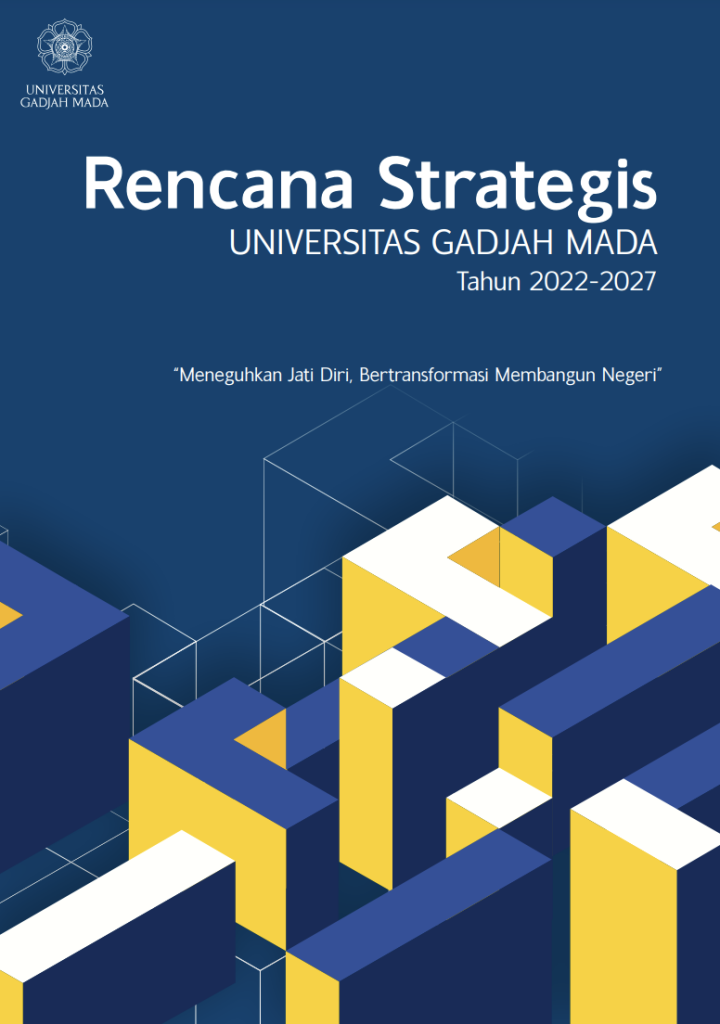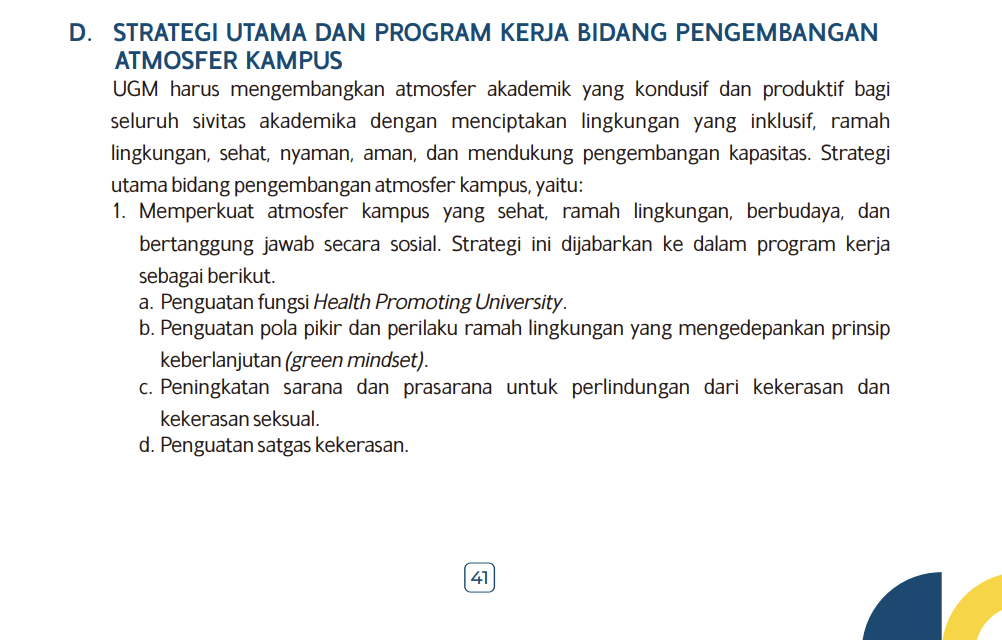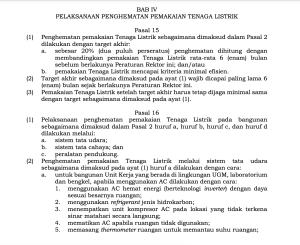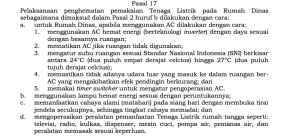Universitas Gadjah Mada (UGM) has strategic plans to upgrade existing buildings to higher energy efficiency. By integrating sustainable practices and fostering green behaviour, UGM aims to align its infrastructure with global standards, supporting its Strategic Plan 2022–2027 for a greener, more sustainable campus. This includes obtaining certifications in energy efficiency for its campus buildings.
The designated Person-in-Charge (PIC) is required to monitor the energy consumption of their faculty buildings and participate in training and socialisation sessions conducted by the Green Campus Team. As a result, new and existing buildings must be managed to ensure they achieve higher energy efficiency standards.
For the past few years, UGM has organised the UGM Sustainable Campus Awards to encourage faculties to implement environmentally friendly construction practices and promote green behaviour to address climate change. The Sustainable Campus Awards will recognize faculties with the most sustainable learning centres. The Faculty of Animal Science took part in the 2024 awards program. Their Animal Science Learning Center (ASLC) has incorporated green building principles, achieving approximately 30% energy savings through the use of natural daylight.
It must be noted that upgrading campus buildings to achieve higher energy efficiency cannot be accomplished without the support of green behaviour from the campus community. That is why strengthening environmentally friendly mindsets and behaviours that prioritise sustainability concepts (green mindsets) is part of UGM’s main strategy and work plan stressed in the university’s Strategic Plan 2022-2027 (pg.41).


In fact, part of green behaviour is reducing electricity consumption. It is clearly stated in Rector’s Regulation Number 2 Year 2022 Article 15 that the electricity consumption in UGM must be reduced by 20% compared to the average usage over the six months preceding the enactment of this regulation.
Article 16 of the regulation provides guidelines for implementing electricity savings within UGM buildings. This includes optimising air conditioning systems, lighting systems, and supporting equipment. All students and staff are encouraged to turn off computers when leaving the workspace for more than 30 (thirty) minutes, turn off printers when not in use and only powering them on shortly before printing, operate audio-video equipment as needed and turn it off after use, etc.



Article 17 demands green behaviour not only in the learning and teaching facilities, but also in the university office buildings. This includes turning off the air conditioning (AC) when the room is not in use and adjusting the room temperature in accordance with Indonesian National Standards (SNI), which range between 24°C and 27°C. Though seemingly small and simple habits, this example of green behaviour can lead to higher energy efficiency.


